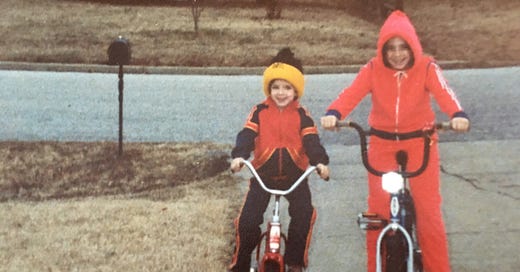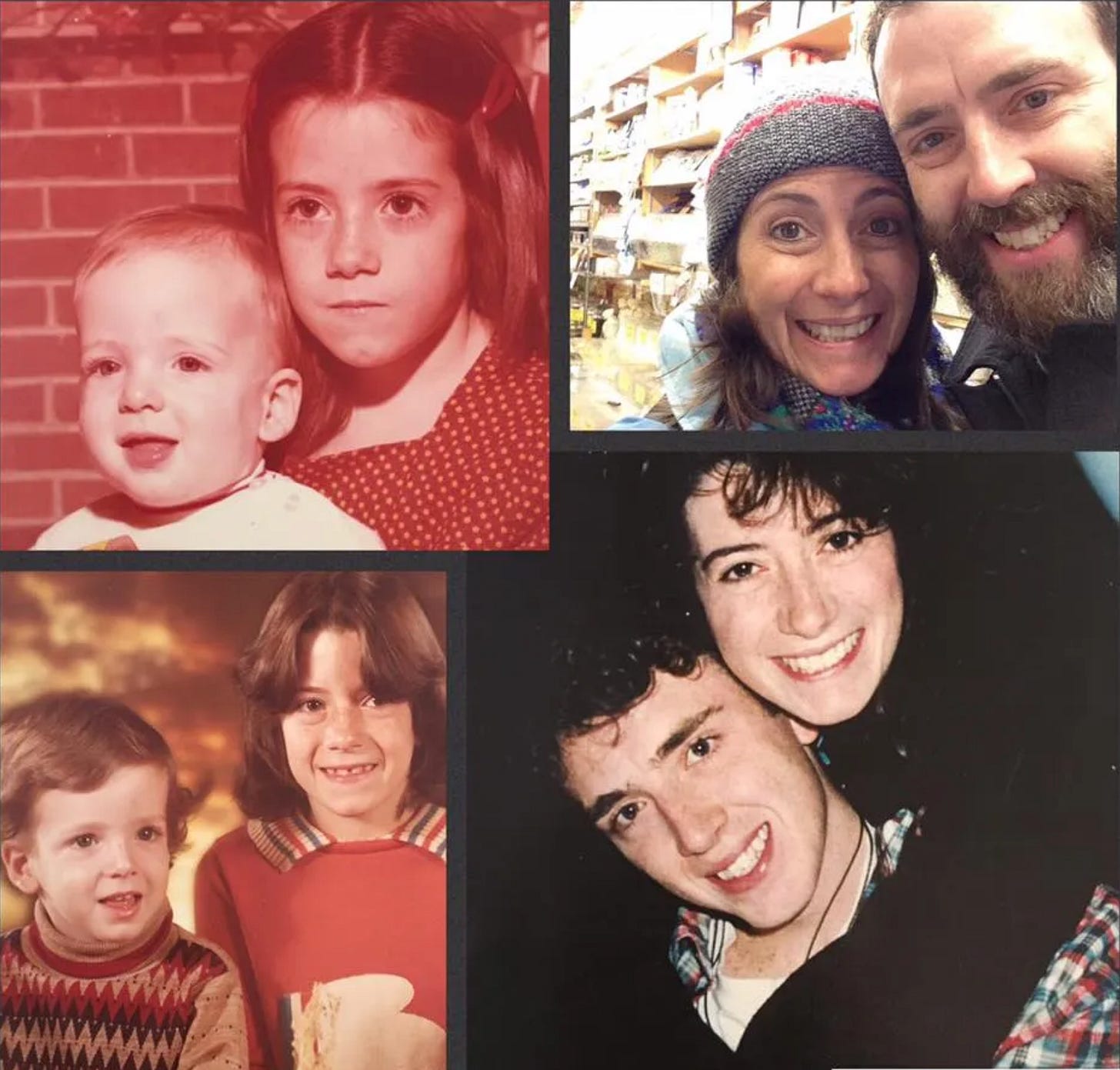I’m not sure who taught my sister, Kaysie, to do anything. When I came along five years later she already knew how to do it all. I mean, it couldn’t have been Dad who taught her all the things, could it? Unlikely, as he sure didn’t teach me. He tried his hand at fathering every now and then—a bit of watching sports here, spanking and scolding there—but none of it lasted very long. Dad had neither the patience nor the sobriety required for teaching his kids in the way they should go.
So Kaysie schooled me in the basics: reading, throwing and catching a ball, tossing a frisbee, climbing a tree, riding a bike, handwriting, making friends, driving a car, driving a stick. She also taught me how to be tough, or at least to act like it (though I’m not quite sure that lesson ever stuck). When she was a teenager, she took me on dates with her boyfriends and, in so doing, taught me how to behave around the opposite sex. When I was a teenager, she gave me stern talkings-to about the pot and booze I was lying about not using. She eventually got me on a straighter, narrower path, making it more likely that I’d follow in her footsteps instead our father’s.
Kaysie was my first father figure. It’s weird to call a sister that, but in her curiosity of mind, confidence of skill, and stubbornness of purpose, she was the first person who helped me imagine the man I wanted to become.
In recent years I’ve grown a lot more flexible and creative in my sense of what a father figure is, mostly because that’s what life has taught me to do. One of the arguments I develop a bit in The Father You Get is that you’re going to look for fathering whether you want to or not. And chances are, you are going to find it. Fathering is multivalent—it has many different forms and values, and it emerges from all over. Fathering is a cosmic thing, something the universe just does. The evolutionary anthropologist Anna Machin argues that because of the unique role males played in the development of our species, we’re wired for fathering—our brains need it for safety, for forming emotional bonds, for securing identity. Jesus inviting common folk to begin their prayers to the Most High God with “Our Father” was an innovation (truly—God the Father was not a key concept in Jesus’ religious milieu) rooted in the human need to be nurtured our whole lives through.
We’re created for nurturing. We look for parenting—mothering and fathering both—all over the place, especially whatever we didn’t get from the parents we got. And if we reflect on it a bit, we’ll find that parenting comes at us through all sorts of sources. Little bits of instruction and love and direction and safety are out there, floating around, like a Wi-Fi signal we can connect to with just a little bit of effort.
I’ll write more about this here over time, and Part 2 of my memoir is an exploration of how this has played out in my own life. But for today I just want to say that my own lifelong experience of multivalent fathering began with my big sister, Kaysie.
I didn’t have much of a need for mothering outside my mom—she was pretty total. But my dad created dad-sized holes in my life. He was an empty outline of a father. For a long time, I believed his present absence had created fathering gaps that were never filled in, and I resented him for it. But eventually, I saw that I really had been fathered, inasmuch as fathering can mean being trained and protected and provided for and all those other good things we tend to expect men to do for their kids. I did have those fathering values given to me, only I had to pick them up patchwork, from composite sources that were not my actual father. (Again, you can read much more about this in The Father You Get, which you should go ahead and preorder and tell your friends to do the same.)
The first such source was my big sister, Kasyie. So on this Father’s Day weekend, I want to thank her for being such a good dad.






Happy Father's Day, Patton!Kaysie sounds pretty as a sister and a father figure. Very nice tribute to Kaysie as your first real father figure. Thanks for opening our minds and expanding the definition of what it means to be a "father."
I think many of us have to repair the dad-sized holes in our own lives with re-parenting. And some times, the only way to do that is to become a parent ourselves. "Life can only be understood backwards, but it must be lived forwards."